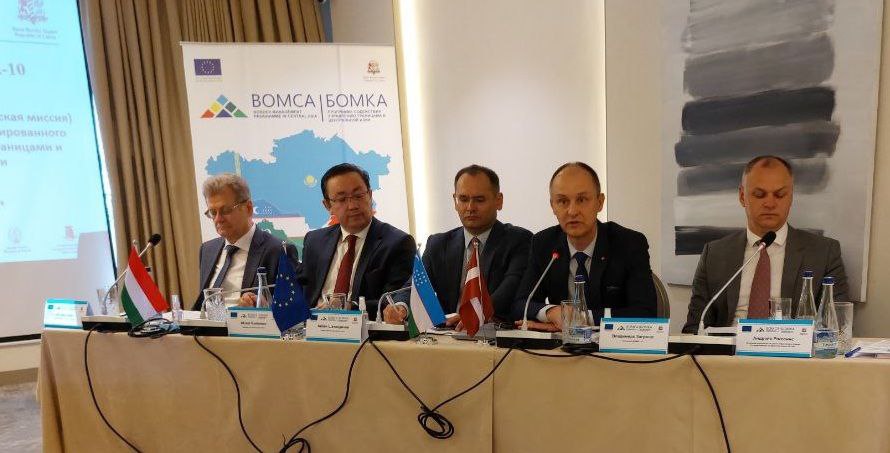From 14 to 16 June 2022, the Border Management Programme in Central Asia held a technical mission in form of a national workshop in Tashkent, on the development of Integrated Border Management Strategy and its implementation plan for representatives of Border Troops of the State Security Service, Border Faculty of the Armed Forces Academy, State Customs Committee, including the Customs Institute, and the Ministry of Internal Affairs, including the Academy, State Committee of Veterinary and Livestock Development and other related agencies of Uzbekistan. The workshop familiarised participants with the advantages of an integrated approach to border security and developed recommendations on the strategy framework and key elements, including its implementation plan.
“Finally, I believe that you will have a fruitful dialogue and exchange of information and I also hope that received professional information from the experts will lay down increasingly strong background for your future work. I wish you all good luck in the pursuit of your professional careers”, - Akmal Rustamov, Delegation of the European Union to the Republic of Uzbekistan.
The experts from the Ministry of Interior of Hungary and State Border Guard of Latvia introduced the general principles of border security and European Union Integrated Border Management principles, as they facilitated discussions on the risks and threats in Uzbekistan and Central Asia.
As a result of the workshop, experts prepared joint recommendations with participants on the structure of integrated border management strategy and the principles of its action plan.
Today Central Asian countries are challenged by cross-border crimes, as irregular migration and trafficking in persons, terrorism, drugs, smuggling, etc. and combating these infractions is one of the main tasks of the governments, which requires an integrated (comprehensive) approach. The Integrated Border Management Strategy identifies risks and threats, agencies and their role in combating cross-border crimes, and areas of development for agencies to successfully address challenges.

